Docx files for personal book: Verbum 9 part 1; Verbum 9 part 2; Verbum 9 part 3; Verbum 9 part 4; How to use the Verbum Lectionary and Missal; Verbum 8 tips 1-30; Verbum 8 tips 31-49
Reading lists: Catholic Bible Interpretation
Please be generous with your additional details, corrections, suggestions, and other feedback. This is being built in a .docx file for a PBB which will be shared periodically.
Previous post: Verbum Tip 7e Next post: Verbum Tip 7g
Resource option: User-defined collections
We have seen how collections work in Parallel Resources. They are also heavily used in searches although the addition of new library resource types should replace some common collections. Too liberal a use of collections slows the startup time.
The collection used for this example is Anglo-Catholic Tractarianism a.k.a. the Oxford Movement. i.e. a very specific English Church movement. The rule used as the base of the collection is “author:("Newman, John Henry", "Pusey, E. B.", "Wilberforce, Robert", "Wiliams, Isaac", "Palmer, William", "Lightfoot, Joseph Barber", "Brinckman, Arthur", "Gore, Charles", "Stone, Darwell", "Copeland, William John", "Keble, John", "Moberly, George", "Neale, John Mason", "Goode, William") OR title:("Tracts for the Times", "Life of Edward Bouverie Pusey")”
The list of members comes primarily from Wikipedia, the two titles from my library:
[quote]“Tractarians were also disparagingly referred to as "Newmanites" (before 1845) and "Puseyites" (after 1845) after two prominent Tractarians, John Henry Newman and Edward Bouverie Pusey. Other well-known Tractarians included John Keble, Charles Marriott, Richard Froude, Robert Wilberforce, Isaac Williams and William Palmer. All bar Williams and Palmer were fellows of Oriel College, Oxford[1].”
Note that Factbook failed to provide the needed information. A search would be needed.
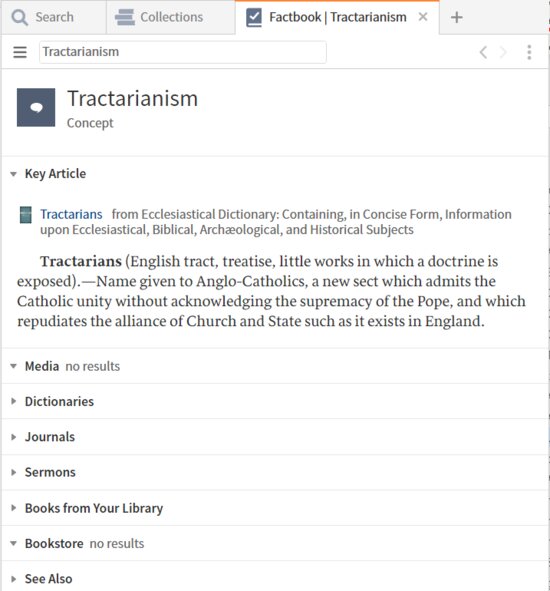
With just author names, there were still four titles in my library that were “tractarian” but not in the collection. Two titles were added to the search argument because they were multivolume; the other two were drag-and-dropped into the “+ Plus these resources:” section of the Collection tool panel.
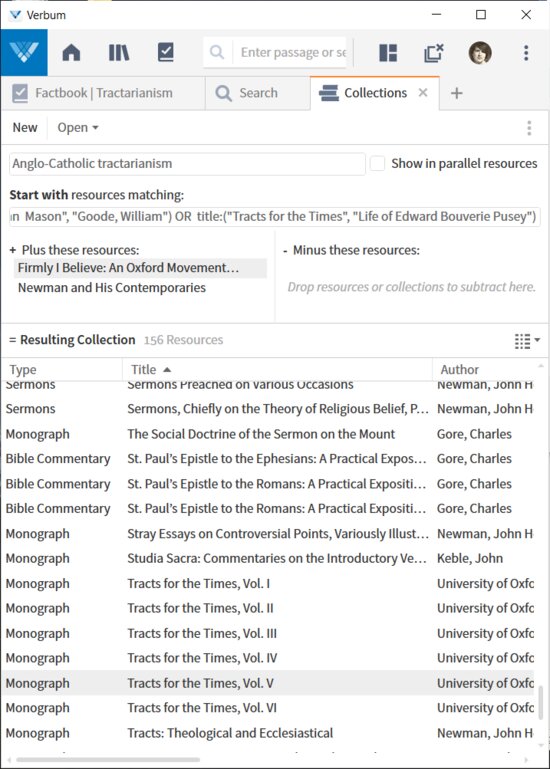
Set the resources to be searched to the collection:
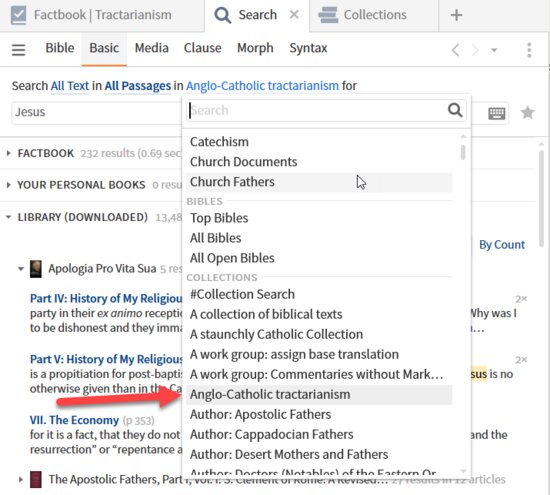
In the Search results, the Apostolic Fathers series appears because of translations by tractarians.
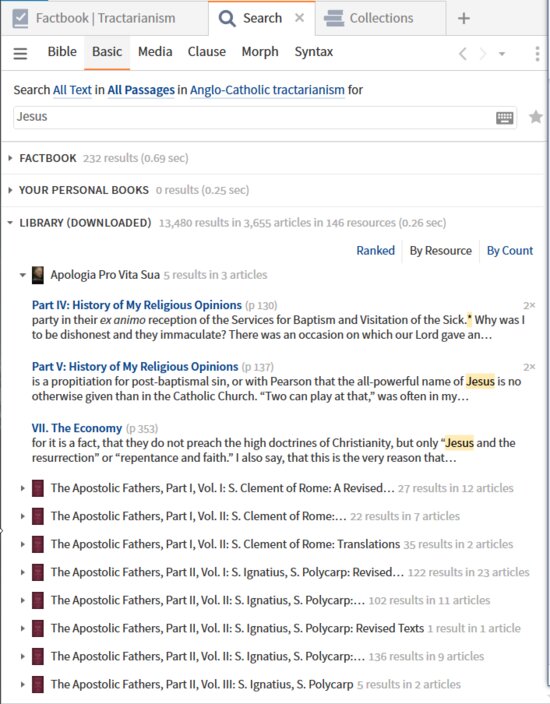
How to make collection
Library Panel
- Open library panel
- Open information panel inside the library panel
- Select the resources you want to include in the collection (using control +A, shift + click, and control + shift to select multiple resources)
- Select Save as Collection in information panel
- Rename the collection if necessary
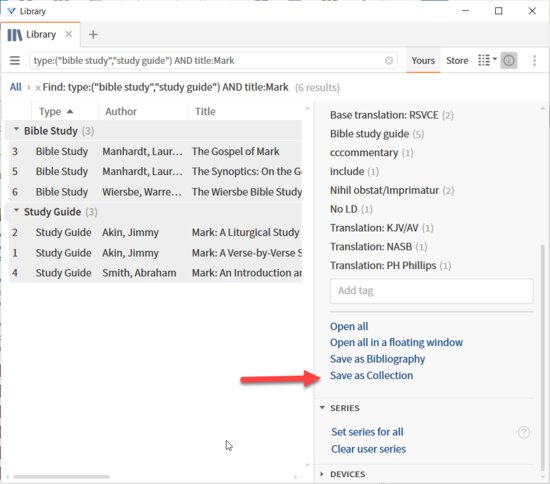
Bibliography document
- Open a Bibliography
- Open Panel Menu
- Select Save as a collection
- Rename if collection if needed
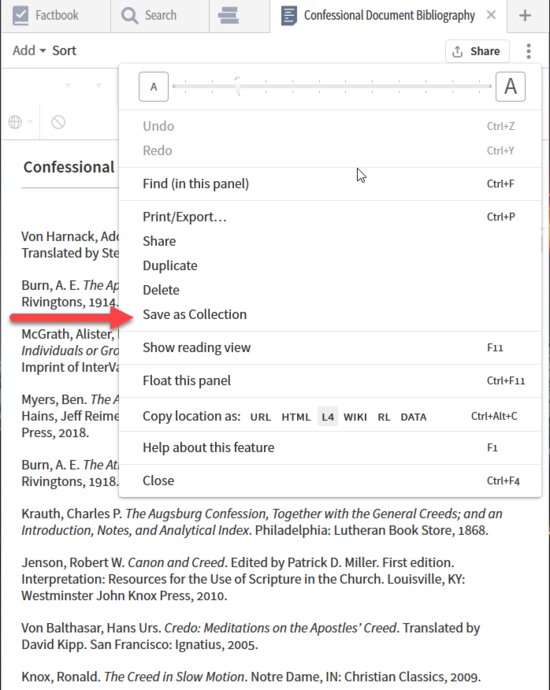
Tool:Collections
The Collections tool has drag-and-drop areas to add or subtract resources from a list; it does not allow you to control the sequence of the resources in the collection. The primary selection, however, is a selection rule written in the same syntax and with the same fields as in the library filter and in the collection built on the fly. It will be discussed in the section on collections built on the fly at the end of the select resources sections.
Resource option: #Collection Search
This is actually a user tip. However, #Collection Search has been at the top of my collections list for so long, I thought it was a system feature.
From Tim Engwer in the forums:
[quote]I have found a way to search multiple collections. It will do until Logos implements a quicker way to search more than 1 collection.
I have created a Collection called "#Collection Search". I included the hash mark so it will show up at the top of the collections list in collections window and search window. I created a shortcut to this collection.
When I want to do a search on more than one collection, I initiate the search as usual then click on the "#Collection Search" shortcut and then just add/delete entries to/from the "+ Plus these resources" area. I then select the "#Collection Search" collection in the search dialogue and it searches whatever collections I have set up. Hope this idea helps someone else!
Resource option: myrating
myrating is user-maintained data with a range of values from 0 to 5. It can be used to select the resources searched.
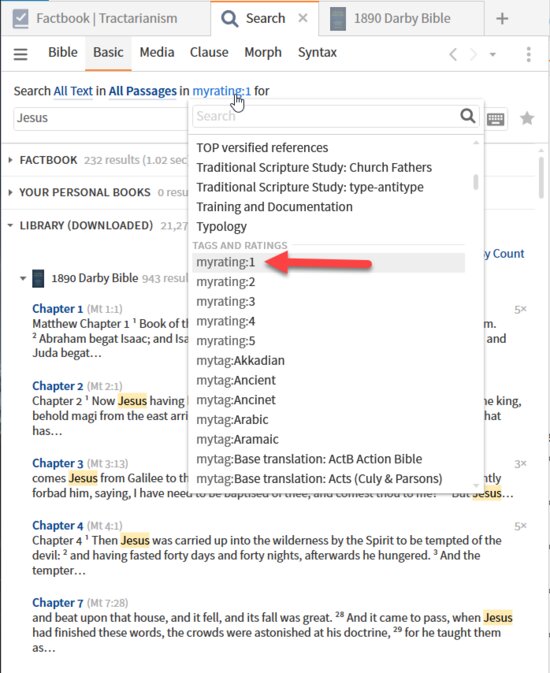
It is maintained by:
- Open resource
- Open panel menu
- Select Information
- Click on the appropriate star to give a value of 1-5
- Right click on a star provides the clear function for a value of 0
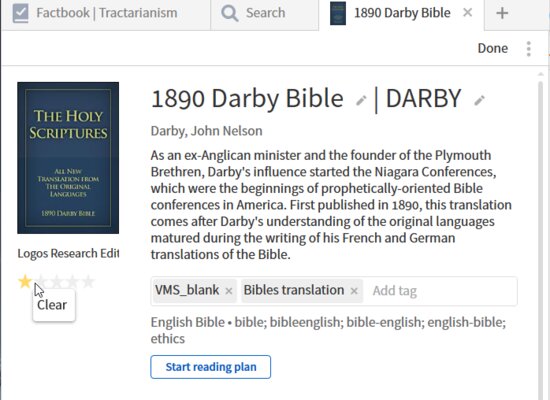
Resource option: mytag
mytag is a freeform field allowing the user to add whatever metadata they find useful. One thing I use it for is to document the default translation used by the source.
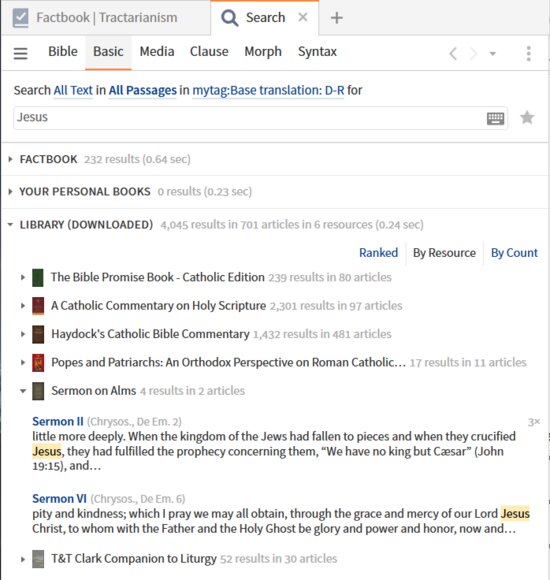
This is also maintained in the Information panel.
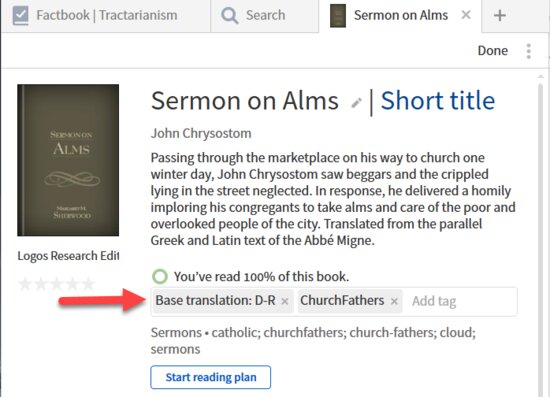
Resource option: Series names from library
Series are a common selection criteria for resource. While I have run this search first on Jesus for consistency, I have run it a second time in a more realistic use – to find all the excerpts from John Chrysostom.
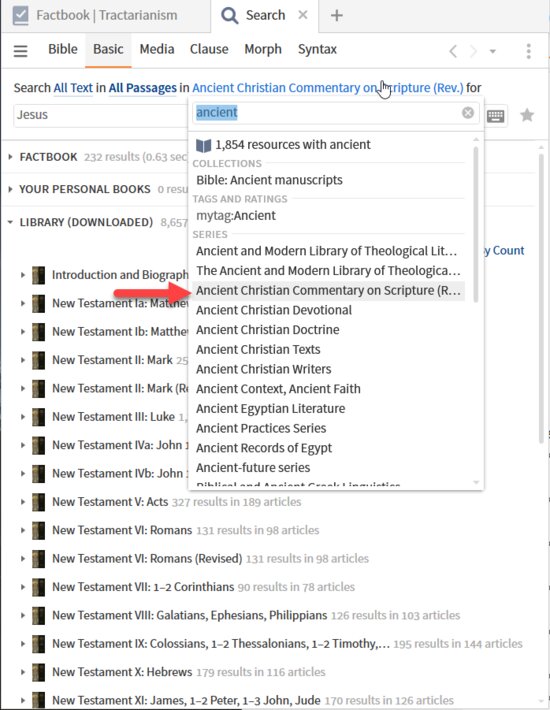
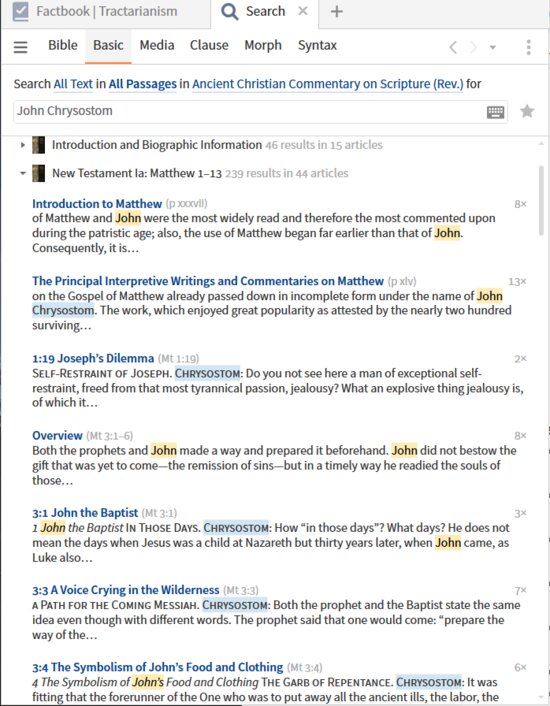
Adding missing series names
One can add a user series name in the Information. For errors in the series, please also report it in the forums for correction so everyone benefits.
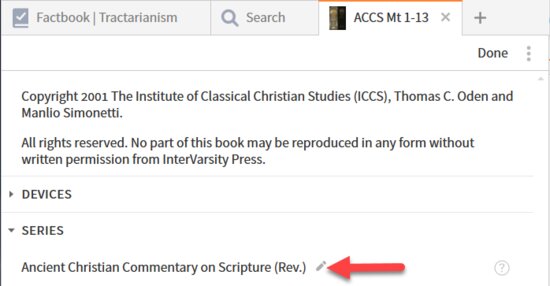
[1] Oxford Movement - Wikipedia accessed 3/18/2021 3:39 PM